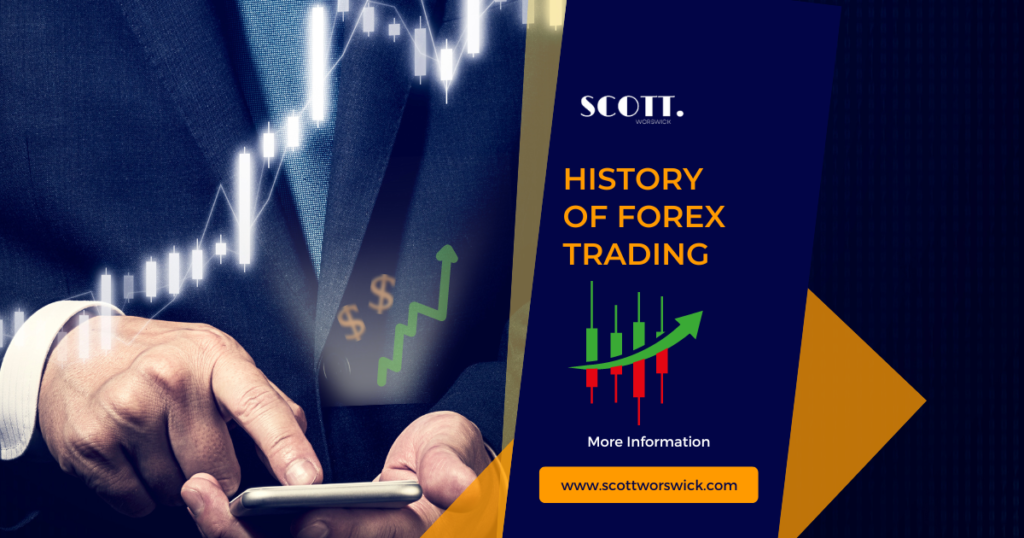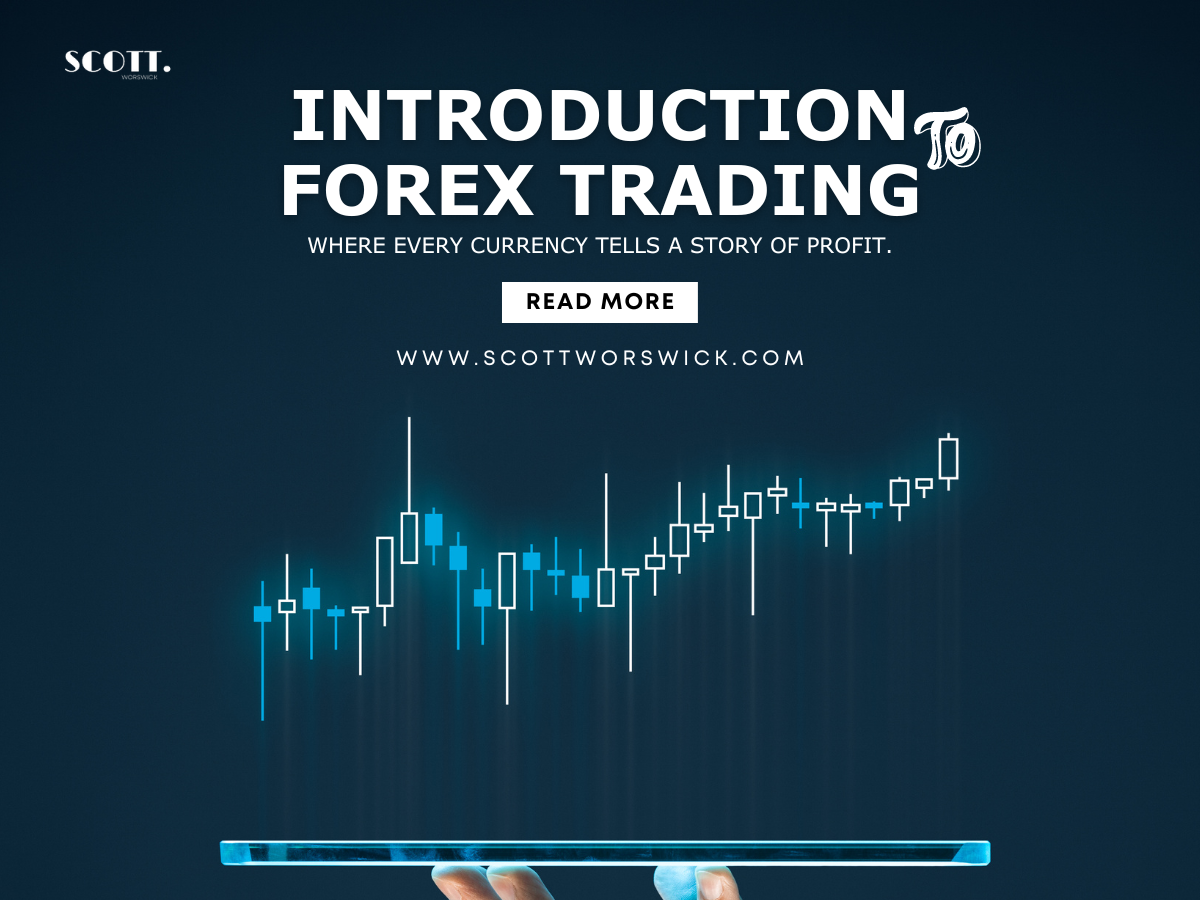Forex trading stands as a beacon of opportunity in the vast expanse of the global financial landscape. It represents the heartbeat of international commerce, where currencies are exchanged in a ceaseless dance of value. Understanding the intricacies of forex trading is akin to wielding a compass in a tumultuous sea, guiding investors and traders through the currents of volatility and opportunity. In this comprehensive introduction, we delve deep into the essence of forex trading, unraveling its definition, historical lineage, and profound impact on the interconnected web of global markets.
The essence of forex trading lies in its ability to transcend borders and bridge currencies, creating a fluid ecosystem where value is exchanged at the speed of light. Unlike traditional stock markets, the forex market operates 24 hours a day, allowing participants from every corner of the globe to engage in trading activities. Whether it’s a financial institution in Tokyo, a hedge fund in New York, or an individual trader in London, the forex market welcomes all with open arms, providing a level playing field for participants to buy, sell, and speculate on currency pairs.
Its roots are traced back to the annals of human civilization, where merchants traversed ancient trade routes, exchanging goods and currencies in bustling marketplaces. However, it was not until the collapse of the Bretton Woods system in the early 1970s that modern forex trading began to take shape. With currencies floating freely against each other, a new era of opportunity emerged, laying the foundation for the dynamic and ever-evolving forex market we know today. As we journey through the corridors of history, we uncover the pivotal moments and key players that have shaped the landscape of forex trading into what it is today, a cornerstone of the global financial ecosystem.
Table of Contents
What is Forex Trading
Forex trading, also known as foreign exchange trading, embodies the dynamic process of buying and selling currencies in the global marketplace. At its core, it revolves around the exchange of one currency for another, with the aim of profiting from fluctuations in exchange rates. Unlike traditional stock trading, which involves the buying and selling of shares in individual companies, it focuses exclusively on the exchange rates between currency pairs. Whether it’s the euro (EUR) against the US dollar (USD), the British pound (GBP) against the Japanese yen (JPY), or any other combination of currencies, forex trading encompasses a vast array of currency pairs for traders to engage with.
The essence of forex trading lies in its decentralized nature, with transactions taking place over-the-counter (OTC) through a global network of banks, financial institutions, corporations, governments, and individual traders. Unlike centralized exchanges such as the New York Stock Exchange (NYSE) or the London Stock Exchange (LSE), there is no physical location for the forex market. Instead, trading occurs electronically, facilitated by advanced trading platforms and electronic communication networks (ECNs). This decentralization ensures that it remains accessible to participants worldwide, transcending geographical boundaries and time zones.
One of the defining characteristics of forex trading is its unparalleled liquidity, with trillions of dollars traded on a daily basis. This immense liquidity ensures that traders can enter and exit positions with ease, even in volatile market conditions. Moreover, the high liquidity of the forex market translates to tight spreads, the difference between the bid and ask price of a currency pair. Low spreads reduce transaction costs for traders, making forex trading a cost-effective option for speculating on currency movements.
Forex trading represents a cornerstone of the global financial ecosystem, providing a platform for participants to exchange currencies and capitalize on fluctuations in exchange rates. From its decentralized structure to its unparalleled liquidity, it offers a myriad of opportunities for investors and traders alike. Understanding the fundamentals of forex trading is essential for navigating this dynamic marketplace and harnessing its potential for profit and growth.
The History of Forex Trading

The history of forex trading is a rich tapestry woven with the threads of economic evolution and geopolitical shifts. While the concept of exchanging currencies dates back to ancient civilizations, modern forex trading as we know it today began to take shape in the mid-20th century. A pivotal moment in the history of forex trading occurred in 1971 when the Bretton Woods system, which fixed exchange rates to the U.S. dollar, collapsed. This monumental event marked the transition to a floating exchange rate system, paving the way for the emergence of the modern forex market.
Following the collapse of the Bretton Woods system, currencies began to float freely against each other, leading to the birth of the modern forex market. In the early days of forex trading, transactions were primarily conducted by banks, multinational corporations, and institutional investors. However, with advancements in technology and the advent of the internet, forex trading became increasingly accessible to individual traders, ushering in a new era of democratization in the financial markets.
As forex trading continued to evolve, so too did the regulatory landscape surrounding it. Governments and regulatory bodies around the world implemented measures to ensure the integrity and stability of the forex market. Today, forex trading is regulated by a myriad of agencies and organizations, including central banks, financial regulatory authorities, and industry watchdogs. These regulations serve to safeguard the interests of traders and investors, fostering trust and confidence in the forex market as a whole.
The Significance of Forex Trading in the Global Financial Markets

The significance of forex trading in the global financial markets cannot be overstated, as it serves as a linchpin that connects economies, facilitates international trade, and influences monetary policies worldwide. With a daily trading volume surpassing $6 trillion, the forex market stands as the largest and most liquid financial market in the world. This immense liquidity ensures that traders can swiftly execute transactions, providing unparalleled opportunities for profit and investment on a global scale. As a result, it plays a pivotal role in maintaining the stability and efficiency of the global financial system.
Forex trading is instrumental in facilitating international trade and investment by enabling businesses to exchange currencies to conduct transactions in foreign markets. Whether it’s a multinational corporation purchasing goods from overseas or a small business expanding into international markets, it provides a mechanism for hedging against currency risk and managing exposure to exchange rate fluctuations. By mitigating the impact of currency volatility, businesses can safeguard their profits and maintain competitiveness in the global marketplace, thereby driving economic growth and prosperity.
Moreover, forex trading influences exchange rates, which in turn impact a wide range of macroeconomic variables such as inflation, interest rates, and employment levels. Central banks closely monitor and intervene in the forex market to stabilize their domestic currencies and achieve monetary policy objectives. Through measures such as open market operations, interest rate adjustments, and foreign exchange interventions, central banks seek to maintain price stability, support economic growth, and ensure financial stability. As such, it serves as a crucial tool for implementing and transmitting monetary policies across borders.
It holds profound significance in the global financial markets, serving as a cornerstone of international commerce and economic development. Its immense liquidity, role in facilitating international trade, and influence on monetary policies underscore its importance in shaping the interconnected web of global markets. As the forex market continues to evolve and adapt to technological advancements and geopolitical shifts, its significance in the global financial landscape is poised to endure, providing a vital link that connects economies and fosters prosperity worldwide.
Conclusion
In conclusion, the significance of forex trading in the global financial markets cannot be overstated. As the largest and most liquid financial market in the world, it plays a pivotal role in facilitating international trade and investment. By providing a platform for the exchange of currencies, forex trading enables businesses to conduct transactions in foreign markets, manage currency risk, and foster economic growth. Moreover, the forex market influences exchange rates, which in turn impact macroeconomic variables such as inflation, interest rates, and employment levels.
As we reflect on the history and importance of forex trading, it becomes evident that this dynamic market serves as a linchpin of the global financial ecosystem. From its humble beginnings to its current stature as a cornerstone of international finance, it continues to evolve and adapt to the ever-changing landscape of the global economy. Whether you’re a novice trader or a seasoned investor, understanding the fundamentals of forex trading is essential for navigating the complexities of the market and capitalizing on opportunities for profit and growth.
In the fast-paced world of finance, it remains a beacon of opportunity for those willing to embrace its challenges and rewards. As we chart our course through the currents of volatility and uncertainty, let us remember the lessons learned from the history of forex trading and the significance it holds in shaping the future of global finance. With diligence, discipline, and a keen eye for opportunity, we can harness the power of forex trading to achieve our financial goals and contribute to the vibrant tapestry of the global financial markets.





Pingback: Top 10 Strategies for Forex Traders to Overcome Fear, Greed, and Overtrading -